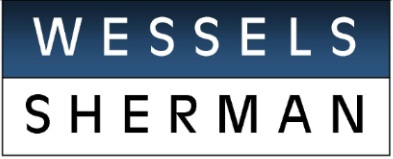


by Sean F. Darke, Esq.
Wage and hour lawsuits have continued to rise over the last ten (10) years and continue to be one of the highest risks in litigation for businesses. Throughout 2017, Wessels Sherman's wage and hour group will highlight some of the difficult issues facing businesses and how businesses can best handle those issues.
One major question for 2017 is the status of the Department of Labor's ("DOL") Regulations on the "white collar" or "EAP" exemption and whether or not it will be implemented. In addition, a recent executive order regarding the number of regulations a federal agency can implement, leaves businesses in limbo.
A U.S. District Court in Texas temporarily blocked the DOL's regulations relating to the "white collar" or "EAP" exemption, which more than doubled the salary threshold contained in the exemption. The Texas Court reasoned that the regulations are "unlawful," since Congress never authorized the DOL to increase the salary threshold to an amount that made the salary test the focal point of the exemption compared to the job duties test. As the Texas Court highlighted Congress's intent when creating the exemption was to emphasize the job duties performed by the individual-not the salary those employees were going to receive.
After the temporary injunction was issued, the DOL appealed the decision to the Fifth Circuit Court of Appeals; however, the DOL has recently asked the Fifth Circuit for additional time to file its brief, presumably, to allow the new administration to take control of the appeal and possibly withdraw it all together. So for now, the matter is pending with the Fifth Circuit Court of Appeals and the entire issue is at a standstill, until we see how the new administration's DOL wants to proceed on the matter, businesses can only have a wait and see approach.
I have received numerous question regarding why the DOL can implement these regulations and not Congress. Without going into a detailed analysis on the DOL's role in rule making and its authority, the following is just a brief description. Congress has authorized government agencies to provide interpretations on the laws Congress enacts and the agency implements. In this case, the Fair Labor Standards Act is being interpreted by the DOL. So when the DOL issues its regulations, the agency is simply interpreting the FLSA. Although the regulations are not law, courts have deferred to the agencies interpretations when making decisions. In fact, the U.S. Supreme Court in Chevron U.S.A. v. NRKC and Auer v. Robbins, created a "deference rule," which courts have relied for over 30 years, rightly or wrongly. So businesses should always review those interpretations when making employment decisions, in order to protect themselves to the fullest extent possible.
Now this leads to the recent executive order, which will reduce the number of regulations that businesses needs to review and attempt to comply with. The new executive order directs government agencies to repeal two (2) regulations, for every new regulation it implements. So for the next four (4) years, businesses will finally see some relief in the number of regulations that the federal government issues; however, it's unclear if the new executive order applies to the DOL regulations on the "white collar" or "EAP", since the DOL regulations were set to go into effect on December 1, 2016. But what is clear is that businesses won't be bogged down with trying to figure out numerous regulations that were previously being implemented, and businesses will be able to get back to what they do best, run its business.
So for now, the DOL regulations are stalled in the Fifth Circuit Court of Appeals and businesses will need to wait and see what will happen. With the new 2 for 1 executive order, businesses will start to see the number of regulations decrease. The other question is whether the executive order will apply to the DOL regulations on the "white collar" or "EAP" exemption, and if so, the entire regulations may need to be reworked or scraped to comply with the new executive order. Until then, businesses must make sure that they are complying with the federal and state wage and hour laws, and hopefully, we will all have clarity on the issue sooner rather than later.
Sean Darke, Esq. is a shareholder at Wessels Sherman Joerg Liszka Laverty Seneczko, P.C. a management-side labor and employment law firm in Chicago, Illinois. Mr. Darke successfully defends Businesses in all areas of Employment and Labor laws under both State and Federal laws. Mr. Darke can be contacted at 312-629-9300 or at sedarke@wesselssherman.com